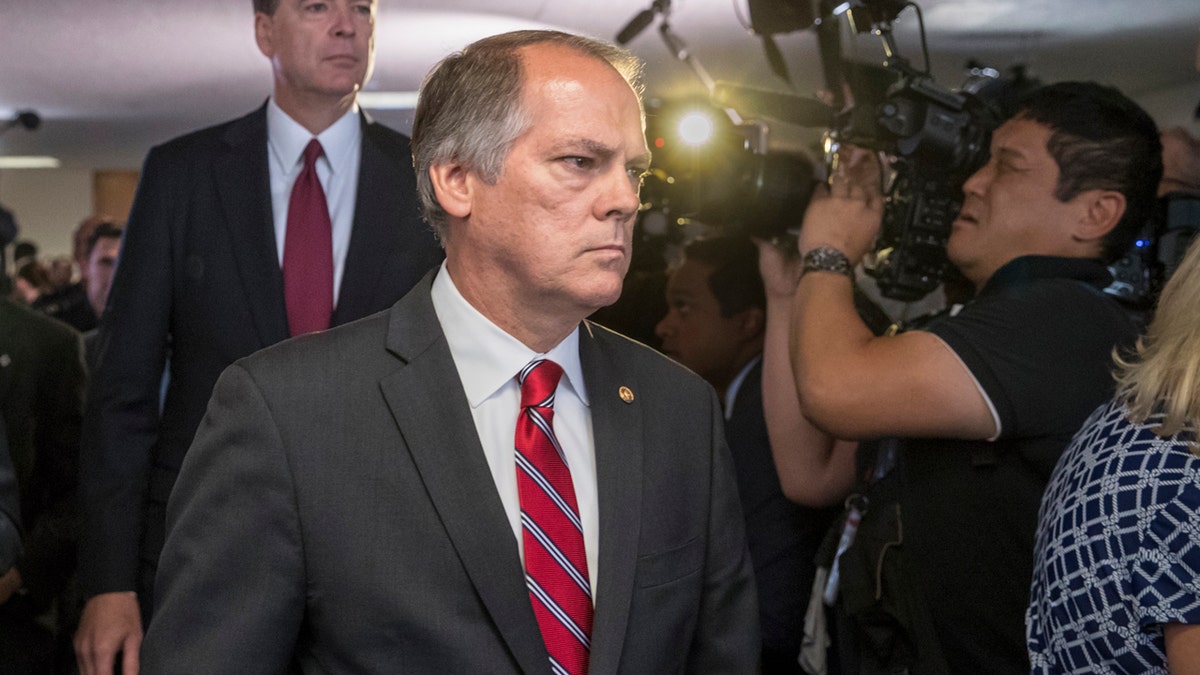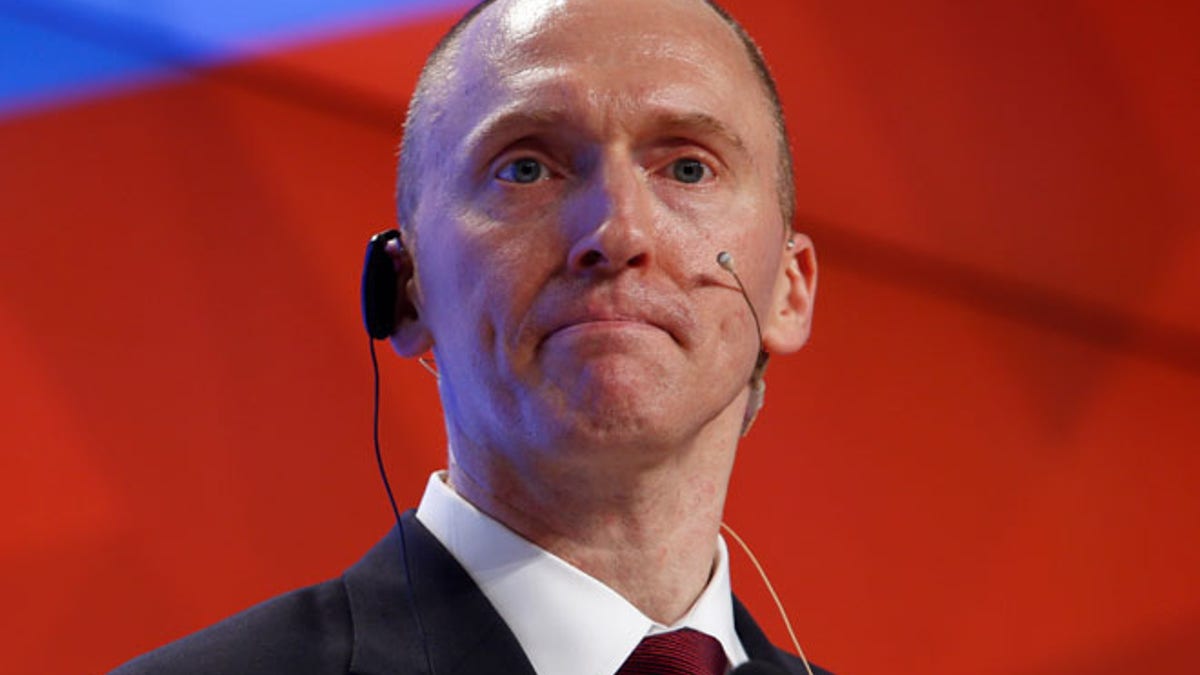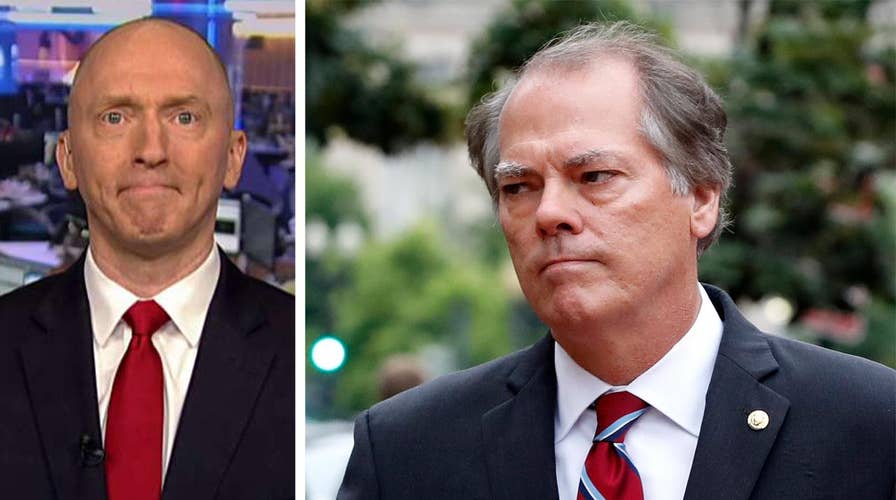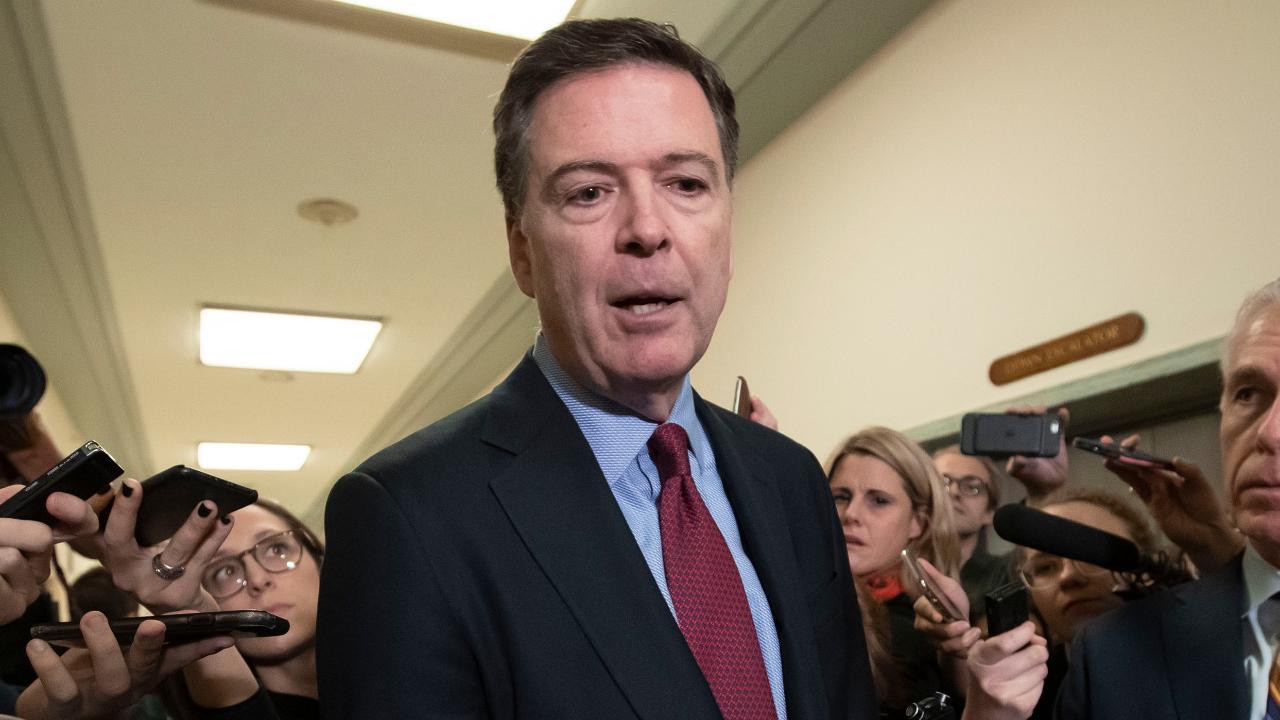Carter Page reacts to James Wolfe government leak case
Former Trump campaign adviser Carter Page discusses on 'The Story with Martha MacCallum' being covered by reporter linked romantically to accused government leaker.
James Wolfe, the high-level Senate intelligence staffer who pleaded guilty in October to lying to investigators probing systemic leaks of classified information, was sentenced Thursday to two months in prison, plus four months of supervised release -- well under the two-year term prosecutors had aggressively sought.
Wolfe had served for 29 years as the security director at the U.S. Senate Select Committee on Intelligence (SSCI), where he was responsible for handling virtually all critical classified information coming to the Senate from the executive branch.
The Justice Department wrote in court filings that it wanted Wolfe punished harshly because he had "significantly endangered" national security, even as Wolfe's attorneys -- and senators on the SSCI -- urged leniency.
U.S. District Court Judge Ketanji Brown Jackson, who was appointed to the bench by President Barack Obama, noted in court that Wolfe was well aware of the “value of truthfulness in a national security investigation.”
But Jackson ultimately sided with federal sentencing guidelines that called for a term of between zero and six months of imprisonment. The judge fined Wolfe $7,500 and said she'd recommend that he serve his brief term at a minimum-security facility in Maryland.
"I am sorry. I am beyond embarrassed," Wolfe said in court prior to his sentence. "I am beyond humiliated. I am beyond mortified."
He requested a term of probation, saying he had “never compromised classified information, never jeopardized national security" while he was carrying out an extramarital affair with a reporter and, later, repeatedly lying to federal authorities in December 2017 about whether he had contacted her and three other reporters.
Jackson said she was "unmoved" by Wolfe's statements, noting that "it is the natural consequence of having chosen to break the law – the shame, the stigma, the changed social circumstances, they all go with the territory."
The judge added that "we may well be living in an era of alternative facts" -- an apparent dig at President Trump adviser Kellyanne Conway's use of the phrase last year -- but, she said, individuals who lie to investigators nevertheless "will be taken seriously and treated seriously."
Prosecutors said Wolfe's conduct, in context and given his decades-long tenure as a top Senate intelligence staffer, demanded a two-year term of imprisonment.
"In the government's view, it's more than the falsehoods," prosecutor Jocelyn Ballantine told Jackson in advance of Wolfe's sentencing, adding that Wolfe had engaged in a "course of duplicitous conduct over a four-year period."
Still, Jackson said the lengthier term of imprisonment requested by the Justice Department was not appropriate.
“Having an affair is not a crime, maintaining relationships with reporters is not a crime, even giving sensitive non-public but not classified information to a reporter is not a crime,” Jackson said.
In a declaration included in a Friday sentencing filing, the Justice Department revealed that Wolfe, 58, was at the center of the FBI's probe into the "known disclosure" of the Foreign Intelligence Surveillance Act (FISA) warrant to surveil a top aide to President Trump.
Wolfe was never charged specifically with leaking any classified information, even though prosecutors alleged he had used his several decades in the highly sensitive position to "cultivate relationships with multiple young, female reporters, who were attempting to gain information."
He struck a plea deal with prosecutors to admit to a false-statements charge concerning his unauthorized contacts with reporters -- after his lawyers sent letters to each senator on the SSCI notifying them that they might need to testify as part of his criminal trial, if one occurred.

In this June 8, 2017 file photo, James Wolfe, center, former director of security with the Senate Intelligence Committee, escorts former FBI director James Comey to a secure room to continue his testimony on the 2016 election and his firing by President Donald Trump, on Capitol Hill in Washington. (AP Photo/J. Scott Applewhite)
Trump, at the time, said Wolfe's arrest “could be a terrific thing" and called him a "very important leaker."
"The FBI did not uncover evidence that [Wolfe] himself disclosed classified national security information," the DOJ wrote in a court filing last week. The filing also openly discussed what was dubbed the difficult "separation of powers issue" at play as the executive branch agency investigates the Senate.
"The decision concerning how to proceed went to the highest levels of the FBI," the filing stated.
In an affidavit attached to Friday's filing, the FBI special agent overseeing the Wolfe investigation noted that there had been a "known disclosure of classified information -- the FISA application," apparently referring to the government's highly secret application to surveil former Trump campaign aide Carter Page.
Page, who has never been charged with wrongdoing despite months of surveillance, is now suing several key players, including the Democratic National Committee (DNC), for alleged defamation stemming from their attempts to link him to Russian collusion in the wake of the leaked FISA application.

One-time advisor of U.S. president-elect Donald Trump Carter Page addresses the audience during a presentation in Moscow (Reuters)
Since-released, but redacted, portions of that FISA application revealed that the FBI told the FISA court it did not believe British ex-spy Christopher Steele was the direct source for a Yahoo News article implicating Page -- although court records showed Steele briefed the news agency. The application also revealed the FBI relied extensively on the unverified, salacious dossier funded by Trump's political opponents.
The SSCI, which functions as a liason between the intelligence community and the Senate, is chaired by North Carolina Republican Sen. Richard Burr and vice-chaired by Virginia Democratic Sen. Mark Warner. In the affidavit filed Friday, the lead FBI agent noted that the agency personally alerted Burr and Warner -- and only Burr and Warner -- that it was probing whether "a person holding a Top Secret security clearance may have disclosed national security information to the news media."
The FBI instructed the two senators not to tell Wolfe about the probe in order to avoid the "potential destruction of evidence" as they continued to investigate, according to the affidavit.
As part of their investigation, FBI agents obtained a search warrant and used imaging software to capture the contents of Wolfe's phone while they had him distracted and attending a meeting with FBI agents to discuss SSCI leaks, according to a separate DOJ court filing last week.
Although the searches turned up evidence that Wolfe's actions had "actual impact on the national security functions of the FBI and had the potential to disrupt important government functions," they did not turn up proof that he had leaked the FISA application or other classified materials, according to the DOJ.
Wolfe served for 29 years as the SSCI's security director, and he has received letters of support in advance of his sentencing not only from Burr and Warner, but also from California Democratic Sen. Dianne Feinstein, who previously chaired the SSCI.
















































